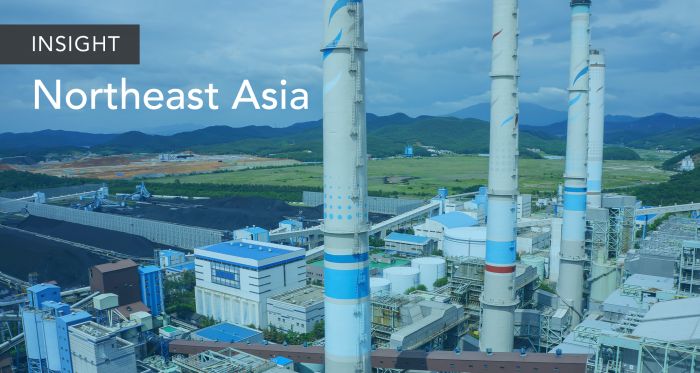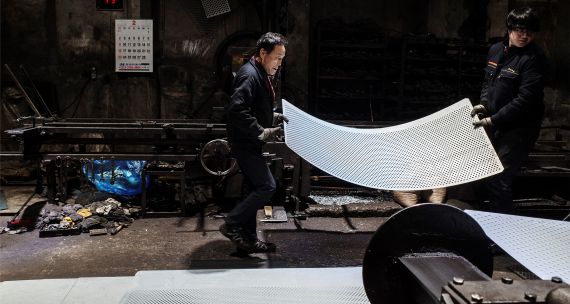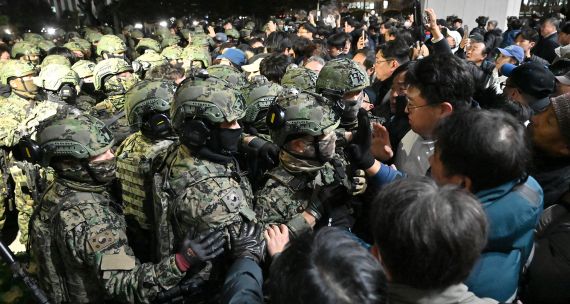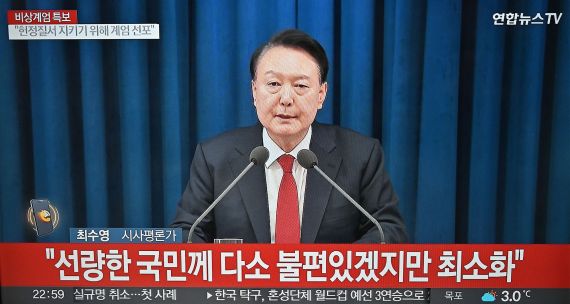The Takeaway
Under President Yoon Seok Yeol, South Korea is ramping up nuclear energy production to meet its climate commitments and bolster its energy security. This increase, alongside plans for new nuclear power plants, presents not only potential business and sectoral opportunities within South Korea but also possibilities for collaboration with Canada. The shift toward nuclear energy is fuelling a debate in the country over how to balance nuclear energy’s possible role in carbon reduction, energy security, and the urgent need to transition to renewables versus environmental concerns and questions about economic feasibility.
In Brief
- In 2022 and 2023, the electricity produced by South Korea’s nuclear plants, as measured by the ratio of their total capacity, consistently exceeded 80 per cent, a significant rebound from a low of 65.9 per cent in 2018. In addition, the total amount of nuclear energy capacity bought and sold at the Korea Power Exchange has reached an eight-year high.
- This resurgence is a marked shift from the policies of former South Korean president Moon Jae In (2017-22), which focused on reducing nuclear power’s share of the country’s total electricity production and halting construction of new nuclear power plants.
- The business and nuclear-power sectors in South Korea view the resurgence of nuclear power production as an important step towards achieving a stable, cost-effective energy supply, emphasizing its affordability relative to LNG and renewables.
- Meanwhile, environmental groups say there must be a comprehensive assessment of the environmental impacts, including the greenhouse gas emissions from uranium mining, refining, and reactor construction. These groups also question the economic feasibility arguments, especially in light of global energy trends.
Implications
Whether South Korea continues to prioritize nuclear power — and the nature of the opportunity for international partners like Canada — will depend in part on which of these two sets of arguments prevails. Supporters of nuclear power point out that South Korean plants have multiple safety measures and are often located in remote coastal villages with easier access to land and a supply of cooling water needed for their operations. They also say nuclear energy can significantly contribute to regional economic development by providing employment opportunities.
However, critics of increased nuclear capacity raise a number of concerns. One is the potential supply chain risks, given Russia’s significant share of the world’s enriched uranium. Environmentalists also challenge the claim that nuclear power is needed to stabilize the otherwise intermittent supply of renewable energy. They argue that increasing the share of renewables like solar and wind supports a reduction of nuclear power generation. However, due to the operational rigidities of nuclear power plants, lowering their output raises production costs, reducing their economic upsides.
Another set of criticisms centres around the long construction periods and high costs of building nuclear power plants. Both factors, say critics, make them a less effective response to urgent climate challenges than, for example, switching to other clean energy alternatives. Finally, critics point to the local environmental and health impacts of expanding nuclear power plants and transmission networks.
Despite the ongoing debate, increased nuclear power production could provide South Korea with opportunities to collaborate with Canada. The recent passage of South Korea’s National Resource Security Special Act, designating uranium as a critical resource, lays the groundwork for deeper co-operation with Canada, not only as a uranium supplier, especially in the context of surging uranium prices, but also in areas like developing small modular reactors (SMRs), nuclear waste management, and reactor decommissioning. Potential partnerships could be strengthened by co-operation on critical minerals, dialogues between the two countries’ Nuclear Safety Commissions, and opportunities identified in upcoming nuclear conferences.
What's Next
- Navigating nuclear politics
The Yoon government is not expected to make any bold announcements about new nuclear power plant construction prior to the April 10 legislative elections. Concerns about local acceptance, highlighted by recent surveys, also indicate that there is general public support for nuclear energy but less so when nuclear power plants are located near a respondent’s community. Local resistance may prompt the government to take a more measured approach to its embrace of nuclear policies.
- Nuclear energy gets a global endorsement
The 28th United Nations Climate Change Conference (COP28) in December 2023 officially endorsed nuclear energy for its potential to achieve carbon neutrality and energy security. Canadian companies have echoed this enthusiasm for nuclear energy through, for example, collaborative projects with their South Korean counterparts, including a recent joint partnership that seeks to commercialize and globally deploy advanced SMR technology. These kinds of initiatives signify the global commitment to leveraging nuclear energy for sustainable development and align with the COP28 endorsement.
- Russia-Ukraine war creates an opening
South Korea is already a global leader in exporting nuclear technology. The Russia-Ukraine war opens a strategic window for Seoul to increase these exports, especially to Eastern Europe and the Middle East, where Russia’s influence is waning.
• Written by APF Canada Research Analysts: Dr. Scott Harrison, Momo Sakudo, and Tae Yeon Eom. Edited by: Ted Fraser, and Erin Williams. Design by: Chloe Fenemore.







